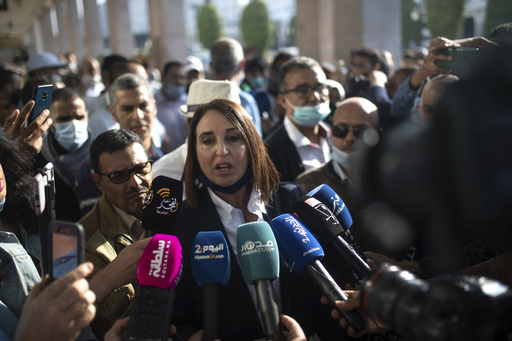
RABAT, Morocco — Politicians and activists in Morocco are raising concerns over restrictions placed on preachers regarding their discussions of the ongoing conflict in the Middle East during their sermons.
At a recent parliamentary meeting, socialist lawmaker Nabila Mounib expressed her frustration over the limitations imposed on imams, stating that they are restricted from addressing the suffering of Palestinians or calling for religious struggles in support of their plight. “No imam can speak about the Palestinian issue,” Mounib asserted on Tuesday, adding that currently, there is no call for jihad on behalf of Palestinians.
Since the onset of the Israel-Hamas conflict 14 months ago, similar worries have emerged among activists about sermon content related to the Palestinian cause. In a statement released last October, Morocco’s Ministry of Islamic Affairs dismissed claims circulating on social media regarding restrictions on discussions, deeming them false and reiterating the country’s support for the Palestinian cause.
In an interview with the Moroccan outlet Anfas Press, Mounib clarified that her intentions were to criticize efforts that prevent imams from speaking about Palestine but clarified that she did not intend to advocate for calls to jihad from their pulpits.
The term “jihad,” which translates to struggle or effort in Arabic, has multifaceted interpretations. It can refer to striving for a life in accordance with God’s will, either through personal faith or through militant involvement for Islamic principles. Yet, over the decades, it has also been utilized by some to justify armed conflicts, especially following events like the Soviet-Afghan war that began in 1979.
The crux of the debate lies in whether references to jihad are appropriate within the context of the Israel-Hamas conflict.
Minister of Islamic Affairs Ahmed Toufiq responded to Mounib’s statements, denying her assertion that imams are barred from discussing the war but confirming the prohibition against calls for jihad. He stated, “Any imam who speaks against barbarism and injustice is welcome, but advocating for jihad is a different matter.”
Elaborating on the rationale behind this prohibition, Toufiq noted that jihad could be interpreted in various ways. However, many pro-Palestinian advocates in Morocco argue that the issue at hand transcends merely the question of jihad and is more reflective of the underlying tensions between state authority and social sentiment that have intensified since the war began.
